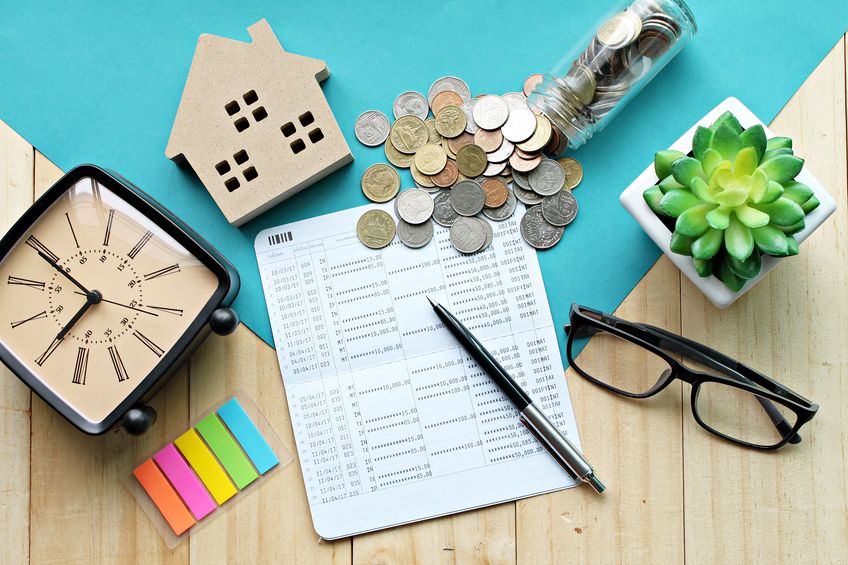Unexpected costs when buying a property: Essential expenses to budget for
Did you know there are fees associated with settling and registering you bond? Make sure you’re aware of all the unexpected costs, whether buying or selling your home.
While the bulk of the cost associated with property transactions are for the buyer’s account, the seller will incur at last some costs.
Here are the key costs to factor into your budget, so you’re not left with less money than you were expecting:
- Deposit
Banks would typically require a 10% deposit on the purchase price of your home, but this can be as much as 30% depending on your credit rating. If you are in the market to buy, you’ll need to have a deposit in hard cash.
It is paid upfront and once-off to the transferring attorneys who can put it into an interest baring account for you until the transfer is complete. This interest can be paid back to you, less the admin fees charged by the transferring attorney.
- Bond cancellation costs
If you have a bond on the property you’re selling, there will be a cost to cancelling the bond. The cost varies but prepare to pay in excess of R4 000 and is payable on transfer.
Your bank will also require 90-days written notice, in advance, before consolidating the bond. So don’t run the risk of incurring a notice period penalty.
- Initiation fee
This initiation fee is charged by the bank at the start of your home loan. It can be paid upfront and as a once-off fee, or capitalised to your loan amount. The fee is regulated by the National Credit Act and is currently set at a maximum of R5 250.
- Compliance costs
Compliance certificates include electrical, gas, plumbing, beetle and electric fence. These are the seller’s responsibility and must all be in order before a property can be transferred.
The cost of the certificates, however, does not include the costs of anything that needs to be fixed or repaired, based on the findings of the inspection.
A seller can ensure a speedy transfer if they get all their paperwork in order, instead of waiting for an offer to purchase before they begin.
- Agent commission
The agent’s commission is the seller’s responsibility to pay and is usually calculated as a percentage of the purchase price of the property.
The standard commission for estate agents is 7.5% of the sale. However, there are no regulations governing the amount an estate agent should be paid and these rates are negotiable depending on your agent’s expertise.
Your agent renders a professional service, that includes the marketing of your property and the commission is compensation for their work in ensuring the transaction offers the best deal to both the buyer and the seller.
- Rates, taxes and levies
As part of the process of selling a property the conveyancing attorneys will require a clearance certificate from the local authorities stating that all rates and taxes are fully paid. In some cases, the seller will be required to make future-dated payments of between two and six months in advance. If the property is registered to the buyer in a shorter time frame the council will refund the seller.
Similarly, if the place being sold is in an estate or a sectional title property, the homeowners’ association could require the seller to pay the levies a few months in advance to ensure all costs are covered while the property transfer is in process.
- Taxes
Capital Gains Tax (CGT is the tax payable on the disposal of an asset (your property) where the proceeds exceed the base cost. CGT is the responsibility of the seller and forms part of income tax – but is not always applicable.
If the property sold is your primary residence, the first R2 million gain on the sale is CGT exempt. A secondary property bought in order to generate rental income would be subject to a different CGT percentage.
It is best to consult a professional tax advisor to ensure you are compliant and know what to budget for.
- Tenant Deposit
If you are renting the property being sold, you will need to repay their deposit with interest. There might also be repairs that need to be done after the tenant vacates your property, so ensure a proper handover and site inspection is done.
- Costs to move
The cost of moving your things from one property to another can be an unexpected expense. It depends on factors such as how far you’re going and the number of loads required.
Smaller removal companies don’t offer transit insurance so for peace of mind, it’s your responsibility to take out cover for that day.
READ: Buying a Home in 2021? Everything Your Insurance Company Thinks You Know, But You Probably Don’t
- Transfer duty
After your deposit, the transfer duty is one of the biggest upfront and once-off costs to consider when buying a property. Transfer duty is a tax levied by the government and no property can be transferred to a new owner if this is not paid. The only time transfer duty is not payable in a normal sale of property is when you are buying from a registered VAT vendor (developers as an example), in which case VAT is included in the price.
The higher the value of the property you buy, the higher the percentage of duty payable. Property transactions below R1million are exempt from transfer duty. See SARS website for transfer duty rates based on property price categories.
| Transfer duty rates for 1 March 2021 to 28 February 2022 |
| Value of property (R) | Rate |
| 0 – 1000 000 | No transfer duty |
| 1 000 001 — 1 375 000 | 3% of the value above R1 000 000 |
| 1 375 001 – 1 925 000 | R11 250 + 6% of the value above R1 375 000 |
| 1 925 001 – 2 475 000 | R44 250 + 8% of the value above R1 925 000 |
| 2 475 001 – 11 000 000 | R88 250 + 11% of the value above R2 475 000 |
| 11 000 001 and above | R1 026 000 + 13% of the value above R11 000 000 |
- Transfer costs
Transfer cost is the professional fee that the conveyancing or transferring attorney charges in a property transaction to register your ownership of the property with the Deeds Office, protecting your legal title to the property. This is paid once-off before registration and is not to be confused with transfer duty. This cost is paid once-off, to the transferring attorneys prior to the transfer of the property being registered.
| Estimated transfer costs according to bond value |
| Value of bond (R) | Transfer Cost |
| R1 000 000 | R 27 549 |
| R2 000 000 | R 87 485 |
| R3 500 000 | R 253 047 |
Property24’s home loan calculator – click here to get an estimation of transfer costs.
- Bond registration costs
For the bank to make sure that they have some form of security over the property you have taken a loan on, they will register a mortgage bond that confers certain rights on them. This bond is registered at the same time as the transfer of the property and is done by the bond registration attorney, an attorney on the bank’s panel.
Similar to transfer costs, this attorney will also charge his professional fee for registering the bond, which the buyer has to pay. This cost is paid once-off, to the bond attorneys prior to registration of the bond.
| Estimated bond registration cost according to bond value |
| Value of bond (R) | Bond Registration Cost |
| R1 000 000 | R 27 549 |
| R2 000 000 | R 87 485 |
| R3 500 000 | R 253 047 |
Property24’s home loan calculator – click here to get an estimation of transfer costs.
- Homeowners and life insurance
Homeowner or building insurance is compulsory – as it gives banks the protection and security on your loan. Homeowners’ insurance protects the bricks and mortar of the property against an insured peril such as fire, flood and so on.
Taking out life cover as an added safety measure safeguards your family and you as the property owner or bond holder to be able to settle the outstanding bond amount in the event of your death.
Try this handy building calculator tool to help you make an inventory of all the structures on your property. Or click here to have a professional risk assessment done.
- Contents insurance
Although not obligatory, it’s highly recommended that you insure the contents of your home against loss or damage as a result of theft or burglary and other perils such as fire, flood and extreme weather conditions.
This insurance is often combined with homeowners insurance, and if you have car insurance, with one insurer, this usually results in a much cheaper combined premium. Click here to get a professional risk assessment done.
READ: How to save money on your home insurance
- Ongoing cost of owning a home
Your new home comes with ongoing municipal costs such as electricity, water and refuse removal. Maintenance is also essential to ensure your home not only retains but grows in Value. Make sure you cover these costs, so you can enjoy your home to the fullest.
Article Author: Property 24
Article Date: 15 July 2021
Article Reference: https://www.property24.com/articles/unexpected-costs-when-buying-a-property-essential-expenses-to-budget-for/30477
Know your rights and responsibilities when buying into a residential community

